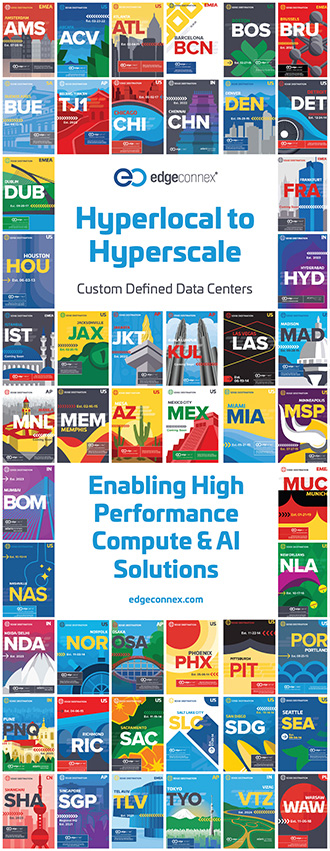Over the last decade, the digital capabilities and the digital ecosystem of the city of Dubai have skyrocketed. Today, Dubai stands proudly alongside other established international Internet hubs, like Frankfurt, London, Amsterdam, New York, San Francisco, Mumbai, Singapore, and Tokyo. Like these long-standing Internet hubs, Dubai is home to world-leading digital infrastructure and a strong and healthy ecosystem of Internet players. But in the last ten years, also like those hubs, it has likewise become a highly attractive business location, bringing investment and talent to its shores and encouraging global companies to locate their control centers there.
There’s a reason why these two developments have occurred in parallel: setting the foundations to become a successful Internet hub simultaneously sets the foundations to become an economic powerhouse. Regions around the world are striving to transform their economies and become a point of reference for globally operating capital, a stronghold for innovations, and a location for the headquarters of internationally operating companies. The key investment here must be digital infrastructure. The digital economy has become the backbone of economic growth for the future, and no region can afford not to be on the path to digitalization.
Playbook for developing a digital society
Why should a city investigate what it takes to become an Internet hub? Because that transformation is not only positive for the businesses involved in digital infrastructure, but also profoundly and positively impactful on a broad economic scale. The world’s leading Internet Exchange operator, DE-CIX, recently published a study1—“The birth of an international Internet hub: a playbook for developing a digital society”—that provides guidance and insight for cities and regions on what facilitates becoming an international Internet hub, how to become internationally competitive, and what the rewards are of making these investments.
Using Dubai as its basis—and the establishment and growth trajectory of the Dubai-based Internet Exchange, UAE-IX, powered by DE-CIX—the study looks at how to establish such a hub and what lessons can be learned from the process. The results of the study demonstrate how regions can transform themselves so that even those markets still suffering from a lack of digital maturity or the need for greater liberalization can also take center-stage in building the digital economies of the future.
ABOUT THE AUTHOR
Ivo Ivanov is Chief Executive Officer of DE-CIX and Chairman of the Board of the DE-CIX Group AG. Prior to these positions, Ivanov was Chief Operating Officer of DE- CIX and Chief Executive Officer of DE-CIX International, where he was responsible for the global business activities of the world’s leading Internet Exchange operator. Ivanov has more than 20 years of experience in the regulatory, legal, and commercial Internet environment. Having joined DE- CIX in 2007, he has in recent years been deeply involved in the establishment of DE-CIX sites in North and South America, Southern Europe, the Middle East, and Asia, as well as several DE-CIX consultancy projects in Africa, Asia, and Europe.



